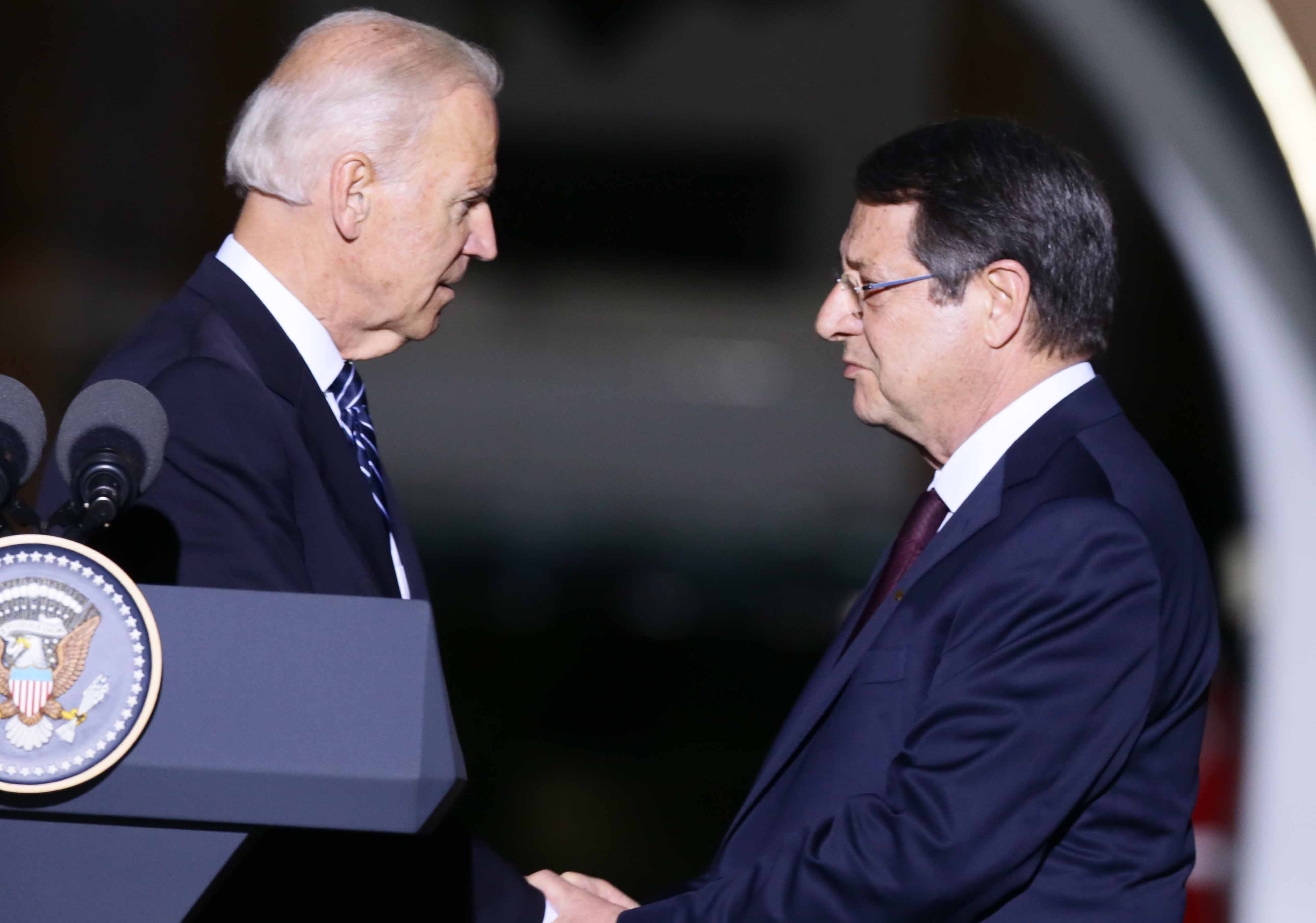It is “hard to understand” how Greek Cypriots failed to achieve a solution to the Cyprus problem during the five and a half years in which Mustafa Akinci was Turkish Cypriot leader, former United States ambassador in Nicosia John Koenig said on Wednesday.
Koenig, who served in Nicosia between 2012 and 2015, was a guest on Christoforos Christofi’s Legal Matters podcast and brought up Akinci after speaking about the disappointment he felt during the visit of then-US Vice President Joe Biden’s visit to the island in 2014.
During that visit, he said, it had been hoped that new confidence-building measures would be announced by the island’s two sides, but Turkish Cypriot leader of the day Dervish Eroglu had not been “helpful”.
“It was intended from the outset to demonstrate how invested we were in the process that was launched by the joint statement from February 2014 … to demonstrate the US government’s investment in this new process of negotiations,” he began.
“There was a desire as a deliverable to see the two sides agree on confidence-building measures in connection with the visit, but it was really difficult to broker significant confidence-building measures between Dervish Eroglu and [then president Nicos] Anastasiades. Eroglu was not helpful, but in that instance, nor was Anastasiades.”
“We ended up with a really lacklustre set of confidence-building measures that were brokered at a dinner that was held between Eroglu and Vice President Biden and Nicos Anastasiades in the buffer zone.”
Asked whether the status of Famagusta was “on the table” at discussions at the time, he said it was “under discussion”, adding that the discussions were “probably the most disappointing thing that I ever was engaged in in diplomacy”, before moving on to the matter of Akinci.
“This is a counterfactual, but if Mustafa Akinci had been the leader of the Turkish Cypriot side at the time I think there is a fair chance that it would have succeeded,” he said.
He added that Akinci, upon his election in April 2015, “made a huge difference”, before criticising the Greek Cypriot side for missing the opportunity to resolve the Cyprus problem when Akinci was in office.
“You have failed to achieve a settlement of the Cyprus issue when your opposite number is Mustafa Akinci. It’s just hard to understand. You can’t do better than that.”
He went on to say that Akinci’s chief negotiator Ozdil Nami “was a very good person to negotiate with”.
Attention was then turned to his feud with Anastasiades, which resurfaced last month after he had penned an article describing Anastasiades as “a fraud and a blowhard”.
Asked whether he could have avoided such robust vocabulary, he said, “I could have, and perhaps I should have, but those do reflect my personal feelings.”
He then clarified that the article “is not a sort of public record of a responsible international institution, it’s just me and those are my feelings about this individual”.
“I don’t mean any disrespect for the Republic of Cyprus or the office of the president of the Republic of Cyprus, but I had a bitter experience with Nicos Anastasiades.”
Christofi then asked him to clarify what he meant by “fraud”, and he answered that “I mean in the general sense”, adding that Anastasiades “misleads” and “promises things that he never intends to deliver”.
He was then asked about a tweet he had written in 2015 when Anastasiades travelled to Moscow, in which he asked, “what do people in Cyprus think about the week in Russia as seen from here? Anastasiades visit and statements, Nemtsov assassination?”, in reference to the assassination of former Russian deputy prime minister and opposition leader Boris Nemtsov while Anastasiades was in Moscow.
“It was a foolish move; it damaged my ability to do my job in Cyprus. I think in retrospect historically, it proved maybe alright,” he said, before asking himself whether he regrets having written it, and answering, “I don’t know.”






Click here to change your cookie preferences